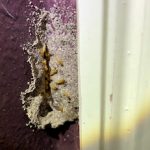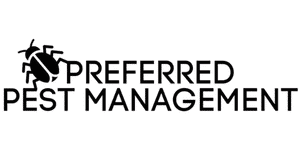If you’re a homeowner, termites are a pest that you don’t want to have to deal with. Unfortunately, these destructive insects can cause serious damage to your home, and often go unnoticed until it’s too late. In this guide, we’ll show you how to know if you have termites in your home, and what you can do to prevent and treat infestations.
What are termites?
Termites are small, pale insects that feed on cellulose-based materials, such as wood, paper, and cardboard. They live in colonies that can number in the thousands, and are notoriously difficult to detect until the infestation has become severe.
Signs of a termite infestation
There are several signs that you may have a termite infestation in your home. These include:

- Swarmers: These are winged termites that emerge from their nests to mate and start new colonies. They are often mistaken for flying ants, but can be distinguished by their straight antennae and uniform wings.
- Mud tubes: Termites build mud tubes from soil, wood particles, and saliva, which they use to travel from their nest to their food source. These tubes can often be found on walls, foundations, and other areas of your home.
- Damaged wood: Termites feed on wood from the inside out, so it can be difficult to detect until the damage is severe. If you notice hollowed-out wood, blistered or sagging floors, or buckling walls, it may be a sign of a termite infestation.
- Frass: Termite droppings, also known as frass, look like small, wood-colored pellets. If you notice piles of these pellets around your home, it may be a sign of a termite infestation.
- Clicking sounds: Some species of termites make clicking sounds when they’re disturbed. If you hear these sounds coming from your walls or floors, it may be a sign of a termite infestation.
What to do if you suspect a termite infestation
If you suspect that you have a termite infestation in your home, it’s important to take action right away. Here are some steps you can take:
- Call a professional: A licensed pest control professional can inspect your home and determine the extent of the infestation. They can also recommend treatment options and provide ongoing prevention measures. Contact Preferred Pest Management, a licensed and experienced pest control company, for reliable termite inspections and treatments.
- Treat the infestation: Depending on the severity of the infestation, treatment options may include liquid termiticides, baits, or fumigation. Your pest control professional can recommend the best option for your situation. Preferred Pest Management offers a variety of effective termite treatment options to eradicate termite infestations.
- Take preventive measures: Once the infestation has been treated, it’s important to take steps to prevent future infestations. This may include regular inspections, removing sources of moisture, and sealing cracks and openings in your home’s foundation. Preferred Pest Management offers ongoing prevention measures to ensure that your home remains termite-free.
Frequently Asked Questions
Q: Can I treat a termite infestation myself?
A: While there are do-it-yourself termite treatment options available, it’s generally recommended to leave termite control to the professionals. A licensed pest control professional has the knowledge and equipment to effectively treat a termite infestation, and can also provide ongoing prevention measures. Contact Preferred Pest Management for professional termite treatments that are safe, effective, and guaranteed.
Q: How long does it take to treat a termite infestation?
A: The length of time it takes to treat a termite infestation depends on several factors, including the size of the colony, the severity of the infestation, and the treatment method used. In general, it can take anywhere from several weeks to several months to fully eradicate a termite infestation. Preferred Pest Management offers fast, effective termite treatments to minimize the damage caused by these destructive insects.
Q: Are there any natural remedies for termite control?
A: While there are several natural remedies that are said to repel or kill termites, there is little scientific evidence to support their effectiveness. Some of these remedies include orange oil, neem oil, and vinegar. However, it’s generally recommended to leave termite control to the professionals, as they have the knowledge and equipment to effectively treat and prevent termite infestations. Contact Preferred Pest Management for safe and effective termite treatments that use the latest technology and techniques.
Q: How can I tell the difference between termites and ants?
A: Termites and ants can often be mistaken for each other, as they are similar in size and shape. However, there are several key differences between the two. Termites have straight antennae, while ants have bent antennae. Termites also have uniform wings, while ants have larger front wings and smaller hind wings. Additionally, termites have a broad waist and straight, bead-like antennae, while ants have a narrow waist and elbowed antennae. If you’re not sure whether you have termites or ants in your home, contact Preferred Pest Management for a professional inspection and accurate identification.
Q: How can I prevent future termite infestations?
A: To prevent future termite infestations, it’s important to take several preventive measures. These include:
- Regular inspections: Have your home inspected for termites on a regular basis, ideally once a year. Preferred Pest Management offers comprehensive termite inspections to detect termite activity before it causes significant damage.
- Remove sources of moisture: Termites are attracted to moisture, so it’s important to fix leaky pipes, clear clogged gutters, and remove standing water from around your home. Preferred Pest Management offers moisture control services to eliminate the conditions that termites thrive in.
- Remove wood debris: Termites are attracted to wood debris, such as fallen branches or tree stumps. Remove any wood debris from around your home. Preferred Pest Management offers wood-destroying organism (WDO) inspections and treatments to protect your home from termite damage.
- Store firewood properly: Store firewood at least 20 feet away from your home, and keep it elevated off the ground. Preferred Pest Management offers firewood inspections and treatments to prevent termite infestations.
- Seal cracks and openings: Termites can enter your home through even the tiniest of cracks or openings. Seal any cracks or openings in your home’s foundation, walls, and roof. Preferred Pest Management offers sealing and caulking services to prevent termite infestations.
In conclusion, termites are a serious pest that can cause significant damage to your home. By knowing the signs of a termite infestation and taking preventive measures, you can protect your home from these destructive insects.


